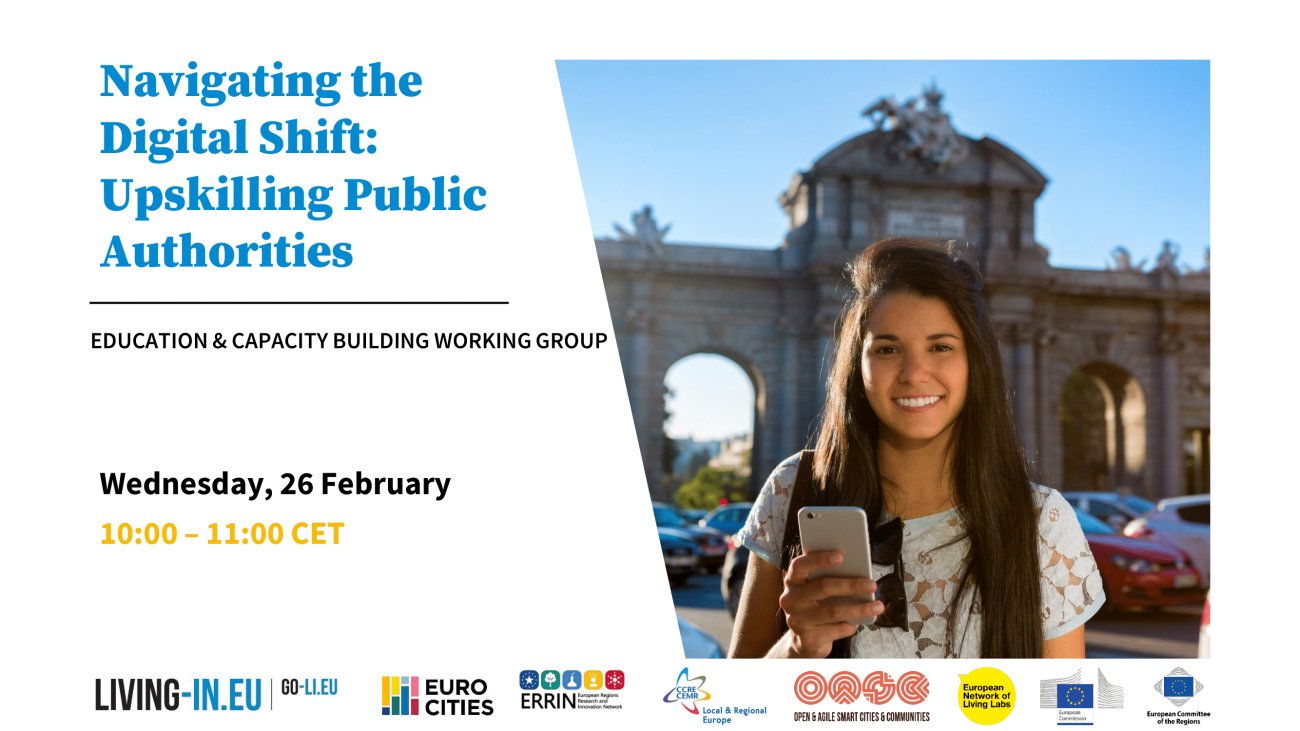Education & Capacity-building WG meeting - Navigating the Digital Shift: Upskilling Public Authorities

Join us on our 3rd meeting in 2025 of the Education and Capacity-building WG on how municipalities can assess and address digital skills gaps within their administration, to ensure effective digital transformation while meeting community needs within their communities.
Municipalities across Europe experience a shift in the way they work. There are many reasons for this, but one of the reasons has been the introduction of a series of technological tools that – in their sum – amount to systemic change. Public sector training, however, rarely adopts a systemic approach, instead focusing on the use of individual tools. This has created (even widened) the gap between those who design these systems and imagine far-reaching changes in organizational workflows decision-making cultures on the one hand, and the end-users expected to integrate them into their daily work on the other. As municipalities embrace more co-creative processes to engage with their stakeholders, closing this gap has become a key concern. This workshop introduces a training framework that attempts to reframe training in a way that brings everyone – designers as well as users – into a systems view.
The meeting will host K8 (K8 Institut fuer strategische Aesthetik gGmbH)’s team who will showcase the “triple loop learning” approach, a playbook for designing twinning-related learning experiences on ethics, governance, and technology.
When: Wednesday, 26 February, 10:00 CET
Duration: 1 hour
Where: Online (Microsoft Teams)
Registration form: https://forms.office.com/e/7RZ9G0LpTp
Agenda
10:00-10:10 - Intro to Living-in.EU E&CB WG and agenda
10:10-10:15 - The challenge of digital upskilling for municipalities and communities – a systems narrative, Soenke Zehle, K8
10:15-10:30 - Interactive part – a sample microlearning unit on learning for innovation: interactive part: a) explore 4 dimensions of innovation in "innovation diamond" (OECD) and share questions ("define"), b) rephrase each of the four dimensions in a way your colleagues / coworkers would understand ("understand"), c) choose a dimension most relevant to your (future) work ("apply"), d) closing activity: possible local contexts for a systems-oriented training process (encouraging participants to adopt a "triple loop" view of their current situation), Sónia Alves, K8
10:30-11:00 - Q&A







